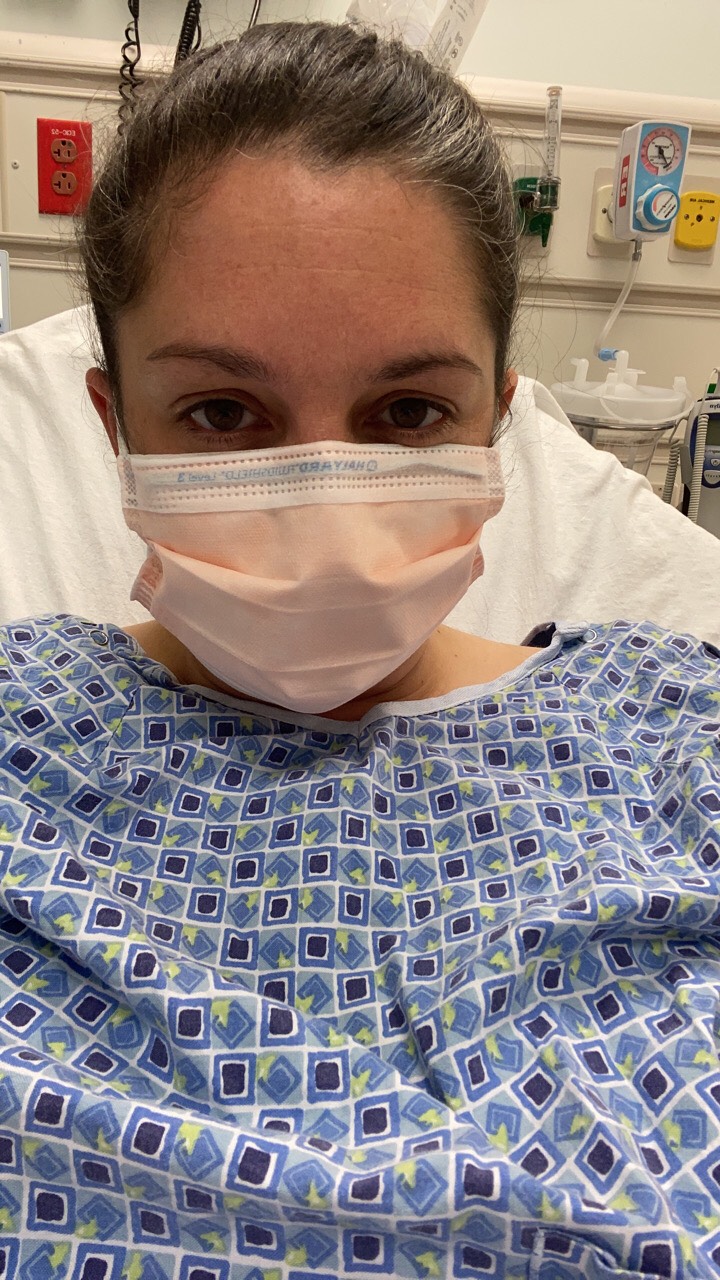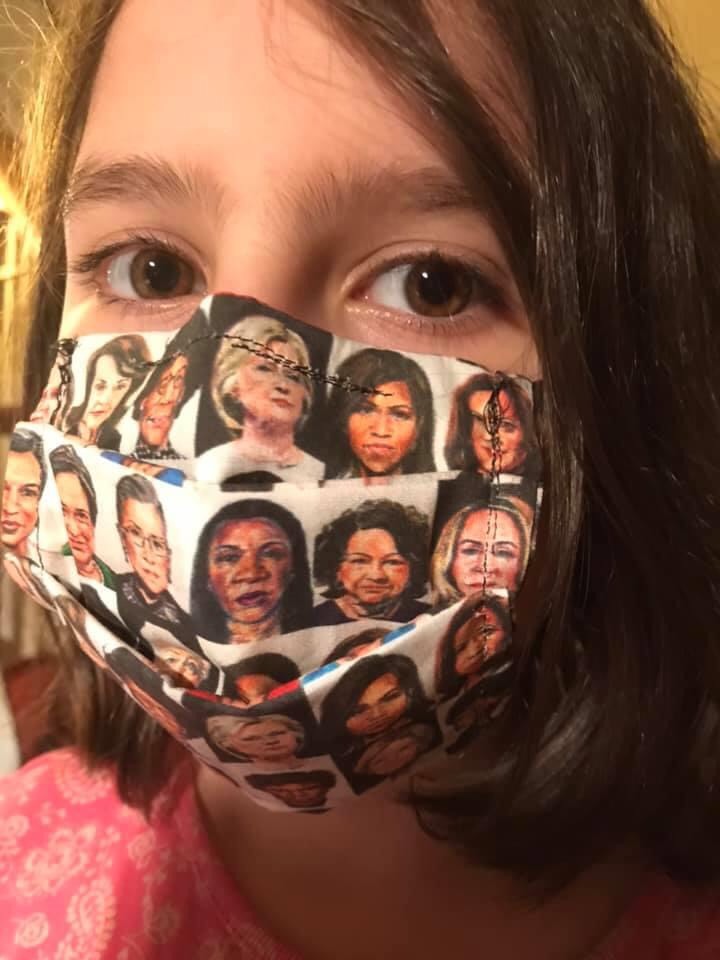There is no time in my American lifetime that has been defined by a pandemic.
How, then, has the pandemic become almost banal in a short four months’ time? With over 130,000 dead, and cases rising exponentially?
In the early days of quarantine, I could look out my window in any direction and see neighbors at home. No one was outside. We’d wave to each other and text back and forth. Despite whatever I saw on television, my own little corner of the world was completely shut down. There was some measure of comfort in that– this idea that even if we couldn’t be together, we were doing this together.
Calling upon communal sacrifice at times of great struggle is not a new concept. Propaganda posters (like the famous Rosie the Riveter) have long been used to inspire unity and sacrifice. Coming together for the “greater good” is a key motivator for recalibrating personal behaviors and sacrifices for the benefit of a greater civic purpose.

Trump, his administration, and the vast vast majority of Republican elected officials, however, have been more concerned with covering up their failures surrounding the pandemic rather than actually solving the pandemic itself. There have been half-hearted attempts to encourage mask wearing (for instance, from Mitch McConnell).
But such messages are easily and heartily undone by images like this one of Texas Republican Senator Ted Cruz, who didn’t wear a mask at all for the duration of a flight on American Airlines:
Depending on your state and what party your governor belongs to, the messages you may see most may be diametrically opposed to those a state over. They may even vary by county, city, or neighborhood.
If you’re feeling angry, confused, frustrated, and like sometimes you’re the only one taking this whole pandemic seriously, you’re not alone.
“Humans are very social and we learn through social interactions. We look to other humans to determine what will keep us safe,” says Juliana Bloom, a psychologist from Florida. This is a time-tested basic truth of human psychology called ‘Social Proof.’
“Social proof is when you have an ambiguous social situation, and as a human, you look around and try and see how to act. When you see photos of people gathering without masks, there’s a part of your brain that says, ‘look at all these people doing this and they are ok,'” even if they aren’t ok.
Even though people may engage in what we know is risky behavior, our subconscious minds are giving us a conflicting message. Our conscious brain knows that people can be asymptomatic spreaders; that people are most infectious the three days before they show symptoms of Covid-19. But subconsciously, our minds read the behavior as safe.
To put it concisely, to the human brain, if everyone else is jumping off of a bridge, our human brains will judge it as being safer, despite what we may objectively know about the risk.
According to Bloom, “Because [Covid-19] is a brand new situation, people don’t know how to behave. So when you see video footage or articles that have photos of people in a crowded situation, your brain is being influenced to copy that behavior, no matter whether you agree with it or not.”
Gee, thanks, brain.
Keeping the sickness and dying out of sight doesn’t help


Image: Covid Patient (left) and ICU nurse (right)
Due to the nature of the disease, much of the negative social proof– images of the people who are ill, suffering, and dying– is kept behind doors, in private homes, hospitals, and group homes.
I feel like I’m being gaslit by my neighbors and my whole state (SC). My daughter’s best friend told her a month ago that, “Covid is technically over for us.” Bars and restaurants are packed. Where I live people are being aggressive if you’re wearing a mask. I don’t use the term ‘gaslit’ lightly. So many times I’ve started to doubt my own reality. It’s made me question if I’m being overly cautious. Even though I know that I’m not. Am I? I don’t know.
–Anonymous
The cognitive dissonance is even greater for health care providers, who are seeing the suffering of Covid-infected patients firsthand.
I am respiratory therapist. The person who intubates patients and runs the ventilators. I work in NY. I’m in therapy because of my experiences taking care of patients in the last few months. My rage at people’s callousness for their communities is of epic proportions right now. Some of my coworkers have anxiety and PTSD. I really can’t put into words how incredibly exhausted I am.
We very quickly went from ‘heros’ to snowflakes and fascists for asking people to wear masks.
Anonymous
Remember back when we were horrified by the idea of doctors, nurses, and hospitals not having enough supplies? We quickly forgot about it because out of sight out of mind.
Remember a few short months ago when everyone was desperate for toilet paper and hand sanitizer? How freaked out people were about the supply chain? At some point it was decided that we would tolerate deaths, but we wouldn’t tolerate lack of toilet paper. Or meat.
The logic of social proof goes that surely, if Covid were that bad, we would have shortages of many things necessary for daily living. Yet for the most part, store shelves have been well-stocked. Score another point for “nothing to see here, everything’s fine.” Except nothing is fine.
In fact, it’s clear that the “mask wars” and “open up rallies” we saw playing out across the country and on social media were purposefully started precisely to desensitize us to the fact that the federal government failed its citizens. Mask wars and the rallies were a form of negative social proof.
Instead of focusing on the government’s failure and ineptitude, we see videos of people without masks purposefully coughing at mask-wearers in public. People are demonizing each other instead of holding the government accountable.
The best way to fight is with good social proof
On the societal level, the greatest thing that we can do right now is to continue to model responsible behavior, no matter what we see around us.

Posting about what you or your family has been doing gives a great reality check to others who may feel secluded or isolated.

Wear your mask when you do go outside or when you know you’ll be close to others.
I wear a mask when I go to do curbside pickup at the store. I figure the person loading my groceries is masked for my protection, why shouldn’t I be masked for theirs?



(Images from left to right: At the pool, getting a haircut, and tuning pianos)
Since we’re not seeing as many people in person these days, social media can be a powerful tool for reinforcing social proof.
Take pictures of yourself exhibiting responsible behavior when you’re out and about doing your daily business.
Embrace the mask life. It’s called fashion, look it up.
Sewing people have already been in on the mask making craze. Since it looks like we’re going to be wearing these for at least the next year, why not get some fun material that you know you’ll be inspired to wear?

Men need to step up, too.
Recently it’s been reported that men report lower percentages of mask usage. This article even suggests that we need to make masks more manly. You know what’s manly? A mask. On a man. Any man.
Tell others about social proof– knowledge is power.
We’re likely in this for the long haul, and the more we understand the psychology of why we feel the way we do, the better we will be able to keep ourselves and our communities safe.
When you feel like you’re alone, remember you aren’t. Reach out to others and commiserate. Trade mask selfies. Or find ways to meet up safely and responsibly, according to current community spread and public health advice for your area.
























